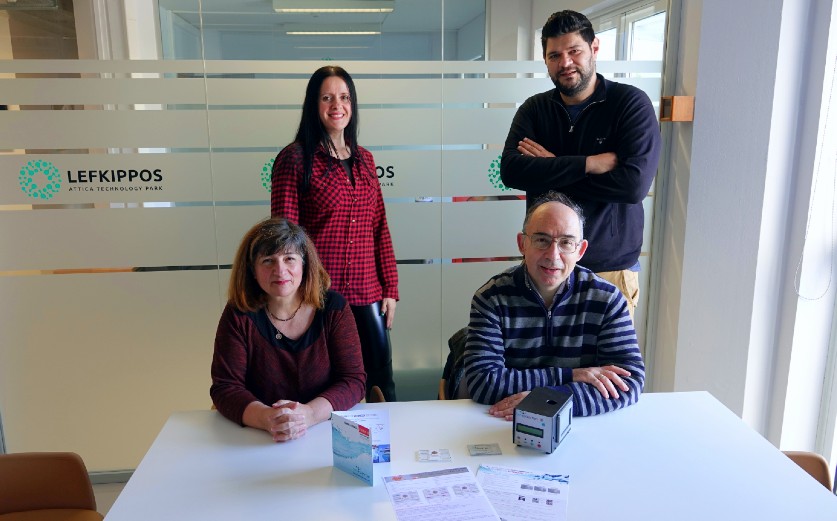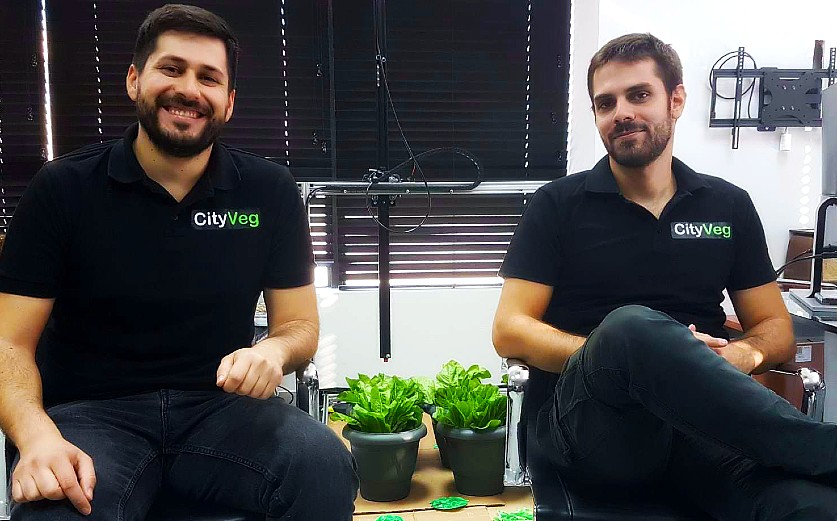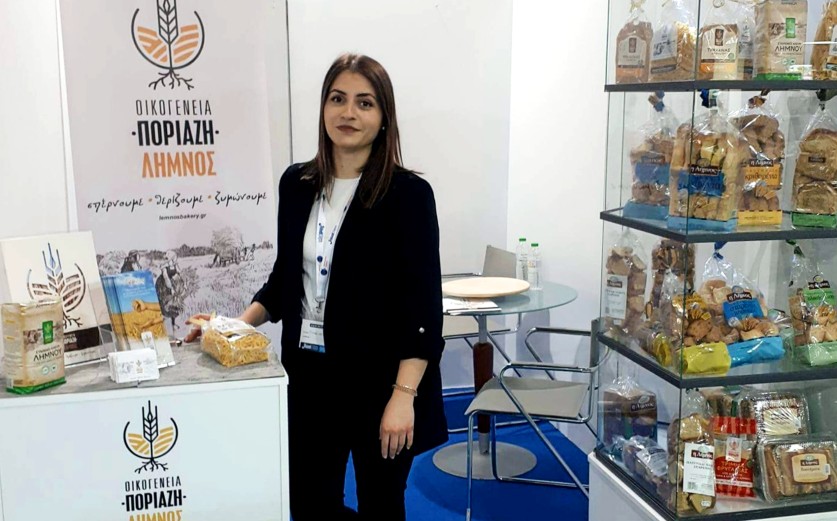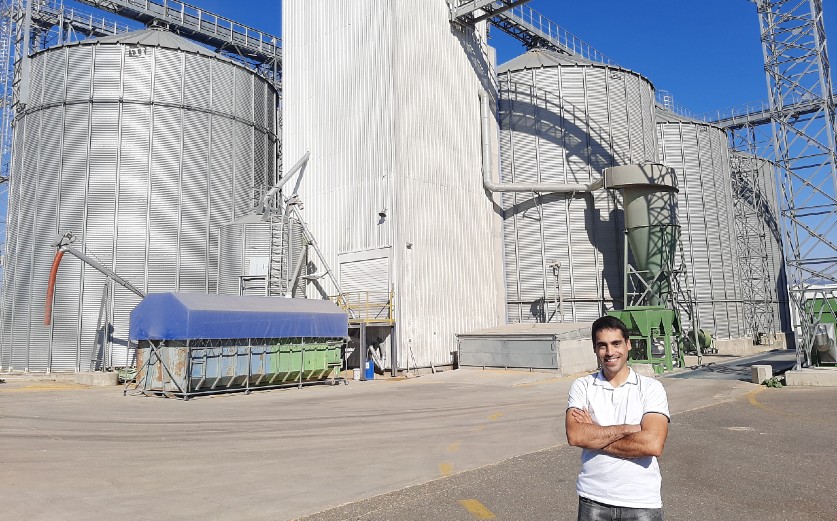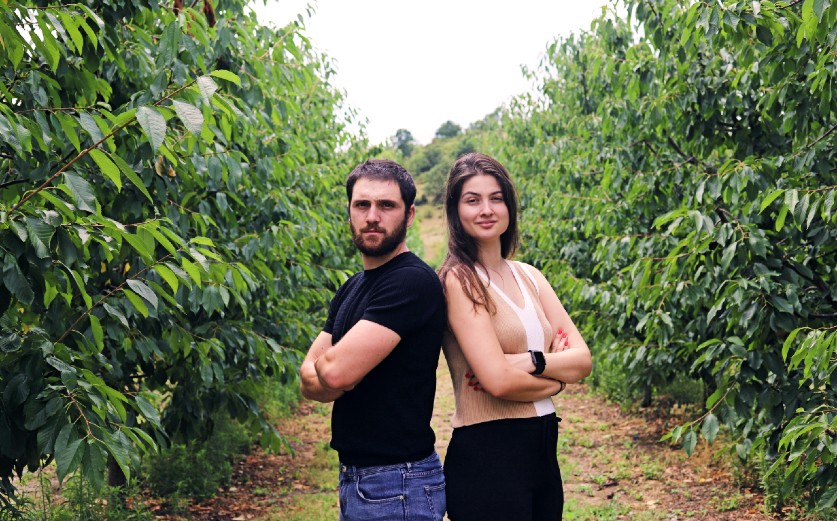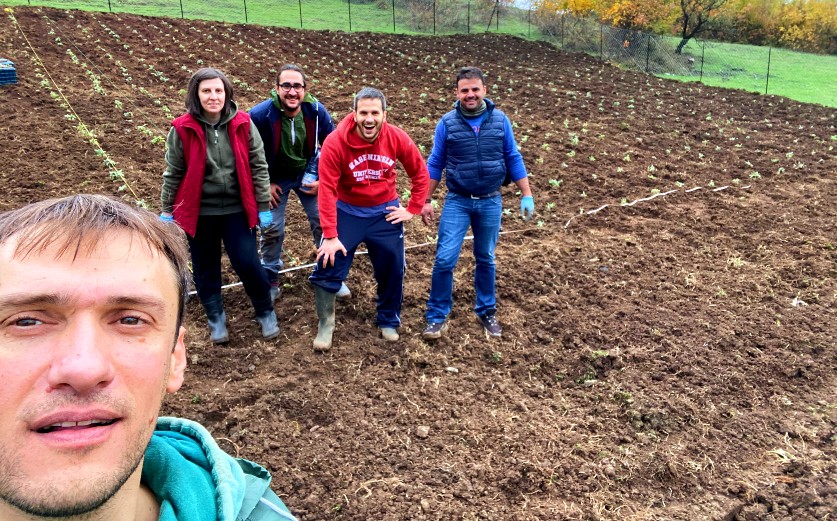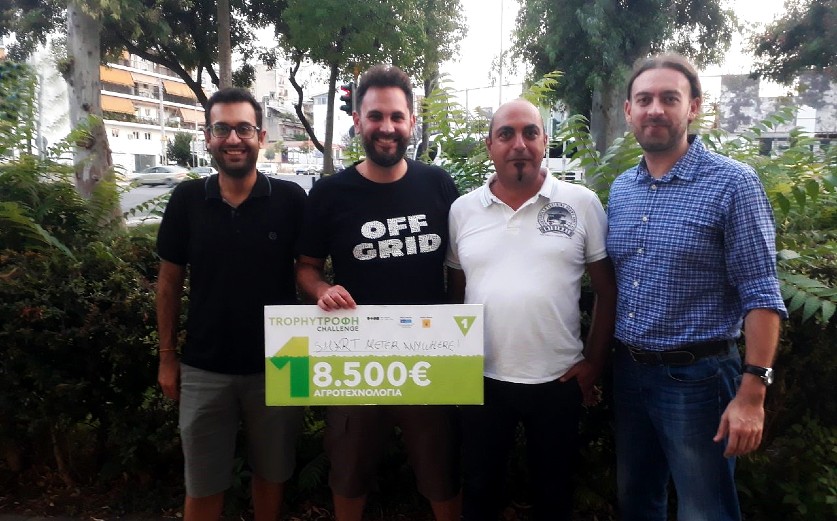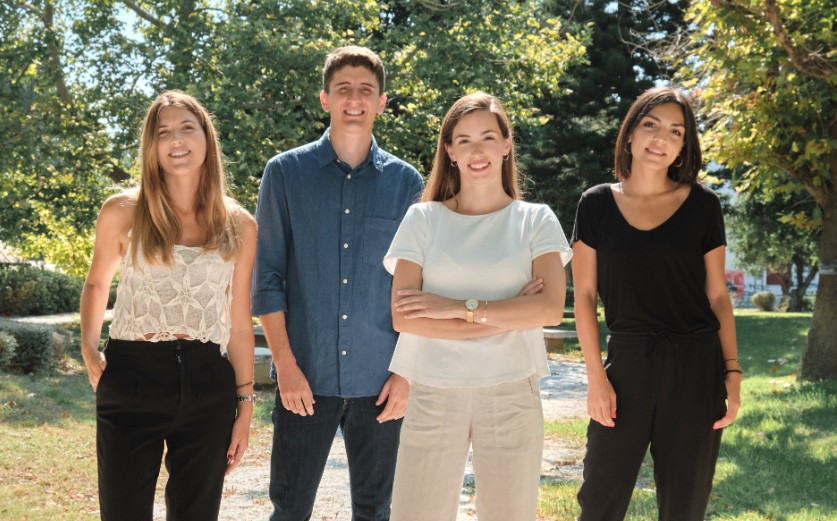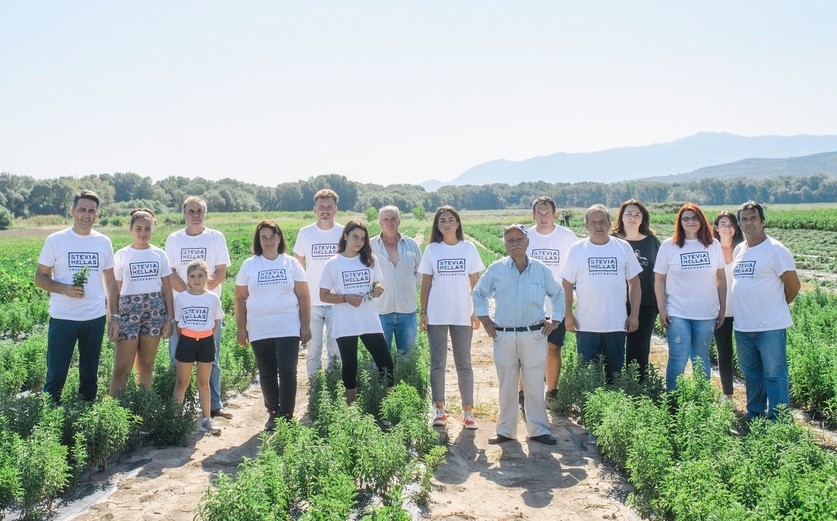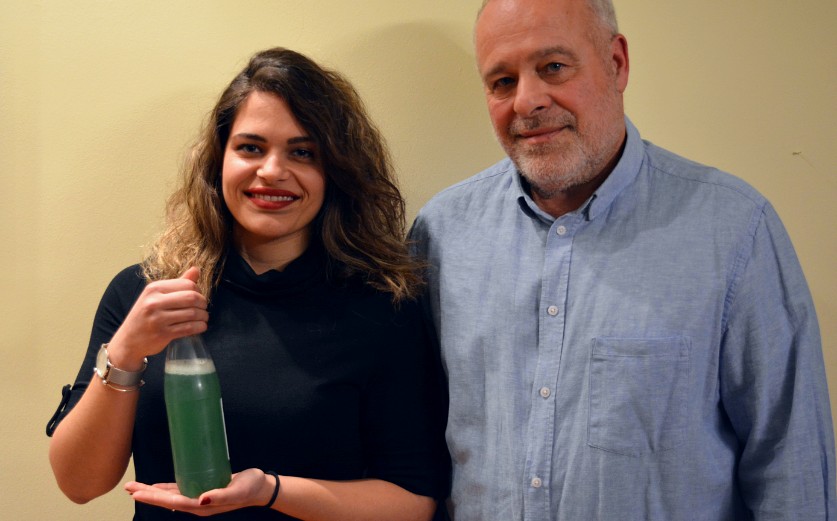Nanoplasmas: The story
Nanoplasmas is an innovative company. By using the latest technology, plasma nanotechnology, creates diagnostic methods to detect bacteria and viruses. Being one of the few Greek companies that offer diagnostics developed and manufactured in Greece, their product managed to win the 1st place in the Trophy-Τροφή Challenge competition, under the Food-Tech Startups category, implemented by the “New Agriculture New Generation” organization, presenting effective diagnostic methods for pathogens, both in water and in food.
I had the opportunity to talk to Kosmas Ellinas, a founding member of the Nanoplasmas team and to get to know a little better both the team and the philosophy behind an admittedly very useful product for the agri-food industry.
Kosmas may have been born in Athens, but he spent his childhood years travelling around Greece as his father was in the military service and had to travel regularly. He has studied physics and as he says, he has always been a science child. Then, he chose to do his master’s degree in Microelectronics, and through that, he was able to work for the National Center for Research in Natural Sciences “Demokritos”. As he tells me, “For all physicists, Demokritos is a unique place. When I was young, I considered it a dream to be able to work in such an important research center.” While he adds that “after all, in the environment of Demokritos, I had the opportunity to meet the co-founders of the company, some of whom in fact were my teachers, they were responsible for my master’s and doctorate degree”.
Kosmas’ doctorate was focused on the use of nanotechnology in order to improve the properties that a material can have. “Through nanotechnology, you can give materials special properties such as anti-wetting or high-wetting properties, control their optical properties and more,” he explains. So in 2016, a year after he finished his doctorate and based on the results of both his own dissertation but mainly of his colleague Dr. Katerina Tsougeni, they decided to found the company Nanoplasmas, together with their then managers, Dr. Evangelos Gongolidis and Dr. Angeliki Tserepis and two other researchers, Dr. Sotiris Kakampakos and Dr. Panagiota Petrou.
Of course, the idea already existed in their minds long ago. As early as 2013, they were announced winners presenting it in the competition “Greece Innovates!” organized by SEV in collaboration with Eurobank. Thus, they slowly began to think and envision that this idea could now be put into practice. “We started with a technology, with a research result. From this point until you reach making a product, it takes a lot of work “, Kosmas tells me and adds that “from 2013 onwards, we have taken part in various incubators and programs that have helped us a lot to develop our technology in a business idea and then into a product “.
They participated in the THEA incubator of EDEA, in the SEV program “Together at the Start!”, while they also geo a fund from the Stavros-Niarchos Foundation for Dr. Katerina Tsougeni, who is the head of the research and development department of the company, so that she can deal exclusively with Nanoplasmas and develop products related to the detection of bacteria. “And of course, we owe a lot to the innovation office of Demokritos but also to the whole ecosystem of Demokritos in general. Without them we might not be here!”, adds Kosmas.
In 2019, they managed to receive funding from the investment scheme of Uni.fund, something that enabled them to go further, to perfect their products and to begin their efforts to bring the products to market. As Kosmas characteristically says, “The fact that Uni.fund believed that a Greek company could in fact manufacture diagnostic devices was something very important for us, a great victory.”
Nanotechnology in diagnosis
I know that at Nanoplasmas, they use nanotechnology, or plasma nanotechnology. What I did not know however, is how nanotechnology works. So Cosmas comes to explain, “Plasma nanotechnology is essentially the treatment of surfaces with a gas plasma (which is the fourth state of matter and consists of free ions and electrons) so as to give them special properties. We took this technology and used it to build a new generation of improved diagnostic tests, such as rapid tests, which we now hear quite often.”
The first products they made were for the detection of salmonella and legionella bacteria mainly in water samples but also from solid surfaces. However, listening to the needs that have arisen from the recent health crisis of the new coronavirus, they created another diagnostic product. “This is a diagnostic product that can detect the presence of the covid-19 viruse on surfaces, such as air conditioners, in just half an hour, something really useful especially for companies that use air conditions almost all year round while employing a large number of workers “, Kosmas tells me.
Their participation in the Trophy-Τροφή Challenge
The team of Nanoplasmas, managed to win the 1st place in the Food-Tech Startups category of the Trophy-Τροφή Challenge, which was implemented for the 2nd consecutive year by the organization “New Agriculture New Generation”.
As Kosmas tells me, “Food safety is one of the areas we have dealt with particularly. After all, we have always been oriented towards the agri-food sector. Through participating in the Trophy-Τροφή Challenge, our goal was to be able to declare our involvement and our interest for the agri-food sector”, while he adds that “when I saw the announcement for the competition, I considered it an opportunity and so, I submitted our participation, of course with the company’s products that relate to the agri-food industry, such as diagnostic tests that increase food safety”. The diagnostic product presented by Nanoplasmas in the competition, quickly detects bacteria for example in fresh products or in dairy and water, something which is of course very useful in the agri-food industry.
Kosmas describes the experience of their participation with great warmth. “It was a very nice experience for all of us and very enjoyable. But beyond that, I felt that I learned new things, new concepts, and at the same time I heard new business ideas, which could even relate to ours, paving the way for possible collaborations”, he tells me while at the same time adding,” particularly important of course were also the talks we had with the mentors in the bootcamps of the competition. They make you rethink your product and your ideas and they give you tools to evolve your business.”
During our discussion he told me several times that he saw some very good ideas from many teams that participated in the competition and so, he was pleasantly surprised when it was announced that they were ultimately the winners of this category. “We think that the connections that our participation in the Trophy-Τροφή Challenge offered us are very important so that we can introduce our innovative approach of the diagnostic tests in agri-food sector. After all, these are tests that can be done in much less time, compared to the microbiological analyzes found in the market “, he tells me.
One of the prizes the team won, the money prize, was used to buy basic equipment so that they could now set up a small production unit, which could be certified in the future. As for the planned trip-prize at Rutgers University, although unfortunately due to the coronavirus pandemic it will take some time for all to be able to travel, the team is looking forward to living this unique experience. As Kosmas tells me, “Apart from the money prize, which of course is very important, we consider the trip to Rutgers University to be a great opportunity for us to showcase our idea outside Greece but also to see the practices used in a country such as America “. Furthermore, through the consulting support they received as another prize of the competition, they were able to both network and promote their product in the market as well as to expand their company sector that deals with the creation of products aimed at the agri-food industry.
Their plans for the future
Their immediate plans are first of all to transport the team to a larger space, so that they can manufacture a larger quantity of products and then the aim for the certification of their products so that they can sell them in the market. Nevertheless, they intend to sell their products on the world market. “We live in a world where everything is connected. Moving around countries and communicating is now easy. So, we are definitely focused on being able to sell our products in this expanded market,” says Kosmas.
After all, as he mentions, “Our products are high-tech and we consider them to have a comparative advantage over similar products, both in terms of time and quality of the analysis as well as its cost. They are definitely aimed for the whole world, not only for the Greek market”.
At the end of our discussion, Kosmas does not forget to stretch out once again the importance of all those people who contributed both to his personal development as well as to the creation and support of the idea and their company. “Many people helped me personally but also our effort as a company and they continue to do so. I consider it a very important asset, to remember those who helped you”, he says.
